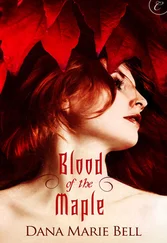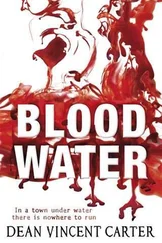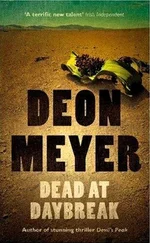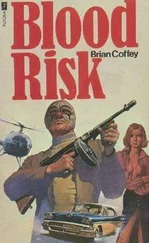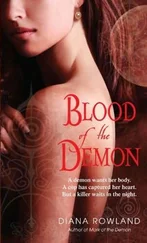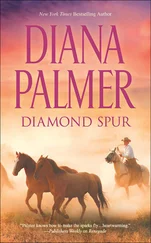Deon Meyer - Blood Safari
Здесь есть возможность читать онлайн «Deon Meyer - Blood Safari» весь текст электронной книги совершенно бесплатно (целиком полную версию без сокращений). В некоторых случаях можно слушать аудио, скачать через торрент в формате fb2 и присутствует краткое содержание. Жанр: Старинная литература, на английском языке. Описание произведения, (предисловие) а так же отзывы посетителей доступны на портале библиотеки ЛибКат.
- Название:Blood Safari
- Автор:
- Жанр:
- Год:неизвестен
- ISBN:нет данных
- Рейтинг книги:4 / 5. Голосов: 1
-
Избранное:Добавить в избранное
- Отзывы:
-
Ваша оценка:
- 80
- 1
- 2
- 3
- 4
- 5
Blood Safari: краткое содержание, описание и аннотация
Предлагаем к чтению аннотацию, описание, краткое содержание или предисловие (зависит от того, что написал сам автор книги «Blood Safari»). Если вы не нашли необходимую информацию о книге — напишите в комментариях, мы постараемся отыскать её.
In Blood Safari
A complicated man with a dishonorable past, Lemmer just wants to do his job and avoid getting personally involved. But as he and Emma search for answers from the rural police, they encounter racial and political tensions, greed, corruption, and violence unlike anything they have ever known.
Blood Safari — читать онлайн бесплатно полную книгу (весь текст) целиком
Ниже представлен текст книги, разбитый по страницам. Система сохранения места последней прочитанной страницы, позволяет с удобством читать онлайн бесплатно книгу «Blood Safari», без необходимости каждый раз заново искать на чём Вы остановились. Поставьте закладку, и сможете в любой момент перейти на страницу, на которой закончили чтение.
Интервал:
Закладка:
‘But you have a claim.’
‘I? I am a policeman. I’m not claiming land.’
‘The Sibashwa have a claim. You are a Sibashwa.’
‘True, the Sibashwa have a claim. In 1889 we were driven out. My people lived there for a thousand years and then the whites came and said, “You have to go.” Tell me, madam, what would you do if the government came and said, “We’re taking your home, find another place.”’
‘If it was for conservation, I would go.’
‘Without a cent in compensation?’
‘No, there must be payment.’
‘Exactly. That’s all the Sibashwa want. In 1889 there was no such thing, just guns at our people’s heads, and they said move or we shoot you. Our ancestors are buried there, a thousand years of graves, but they just took the ground and said we must go. Now the people, the Mahashi and the Sibashwa, everyone, all they are saying is, “Let us make right the wrong.”’
‘What about the National Park?’
‘What about it? All the people, all the claims, they are not asking for land in Kruger. They say, give us land here beside the park, then we can also build lodges. Do you know the story of the Makuleke?’
‘No.’
‘The Makuleke had a land claim to the north of the park and they won, ten years ago. So what do you think happened? They built a lodge and they formed a committee with Kruger and everyone is happy. The Makuleke people get the profit and Kruger gets the conservation. So why can’t other people do that too? That’s all they want.’
‘But what about the development that Jacobus knew about?’
‘These people at Mogale, they take these things and make lies out of them. Many business people came from Johannesburg and they said to the people, let us build this and let us build that. The Makuleke put the management of their lodge out on concession; a white company runs it. It’s just business, everyone wants to do business. Some white men had plans for golf resorts, but that won’t happen. Cobie de Villiers heard stories and he went running to Kruger before the process had even begun, before the people could decide if it was good or bad.’
‘What about the vultures?’
I’d been wondering when she would get to that. Phatudi didn’t like the question. He got up from his chair and waved his hands. ‘The vultures. Tell me, madam, who killed the animals in this country? Who hunted the quagga until not one was left? And the Knysna elephant? The black people?’
‘No, but …’
‘Look at the people of Limpopo, madam. Look where they live. Look how they struggle. There are no jobs, there is no money, and there is no land. What are they supposed to do? When the children have to eat tonight and there is no food, what do you do? You … the Boers did it too. Why did the Boer make Kruger Park? Because they, the whites, had killed nearly everything and they wanted to save the last few. Same with the elephants. Because the Boers were poor and ivory was good money, so they shot them. Thousands and thousands. But that’s OK, because they were white and it was a hundred years ago. Today, my people are poor. The problems are socio-economic. We need to make jobs for the people, then they will leave the vultures alone.’
‘Wolhuter said the poisoned vultures were an ambush, to get Jacobus there. But someone else murdered those people. Because they wanted Jacobus out of the way.’
Phatudi said something in his language, an expression of disbelief. The black sergeant shook his head.
‘Inspector, my brother is incapable of killing people.’
‘Then he is not your brother, madam. This Cobus, he is …’ Phatudi tapped a thick finger against his temple. ‘They saw him. Five children saw him with a firearm. He went into the sangoma’s house where the people with the vultures had gone and they heard him shooting inside and they saw him come out. He was running then. The children know him from Mogale; they came there with the school. They don’t know he hates the blacks. They don’t know about the politics and about how De Villiers talks about “the kaffirs”. They say what they saw.’
Emma didn’t want to hear it. She looked away.
Phatudi sat down again, opposite Emma. His voice was gentler. ‘This De Villiers, he is not like you. He can’t be your brother.’
‘Then why was Wolhuter murdered?’
‘Who says he was murdered?’
There was a query on her face.
Phatudi pointed a finger in the direction of the animal pens. ‘That lion killed him. Wolhuter went in there last night. They say he sometimes has to get the honey badger out. The lion and the badger were together in the pen when they were small, now it sometimes goes under the wire and makes trouble with the lion and then it gets hurt. This morning they found the honey badger at Wolhuter’s house, so it was out of its cage. Wolhuter did the wrong thing, he didn’t dart the lion with the drug first. These things happen here.’
Emma stared at Phatudi as if she were weighing every word for truth. The stare continued once he had finished speaking, until she sighed and let out a long breath that made her shoulders droop, a gesture that indicated she had no more questions.
It engendered a degree of sympathy in Phatudi. ‘I’m sorry,’ he said. What for? I wondered.
Emma nodded without speaking.
‘Yesterday I didn’t have your number. I would have told you that I’m sending my people to look after you. The community is very angry. They say if they find De Villiers they are going to kill him. When you came looking for me at the police station. Someone heard what you said. Then I started hearing the stories, how they were going to …’He lifted a hand to his bald head and scratched behind his ear. That wasn’t the only sign that he was lying. It was in his voice, too. Up till now he had been on solid ground in all his statements, but in this explanation there was a change of gear – a faint plea that said ‘believe me’.
‘It doesn’t matter,’ said Emma.
Phatudi got up. ‘Mrs Le Roux, I have to go.’
His sergeant and constable also made moves.
‘Thank you, Inspector.’
Phatudi said goodbye to her. He ignored me until just before he walked out, when he looked me in the eye. I wasn’t sure whether it was a warning or a challenge.
Emma and I remained behind. She put her elbows on her knees and dropped her head. She sat like that for a while. Then she murmured something.
‘Excuse me?’
‘I can’t go in here now. I can’t ask if Wolhuter left anything for me.’
On the road back to the Mohlolobe Game Reserve, Emma asked me to stop at the butcher’s shop in Klaserie. She went in and came out five minutes later with a brown paper parcel.
She climbed into the car and handed it to me. ‘This is for you, Lemmer.’
I took the parcel.
‘You may open it.’
It was biltong, at least two kilograms of it.
‘I saw how much you enjoyed it yesterday at Stef Moller’s.’
‘Thank you very much.’
‘Only a pleasure.’ But she wasn’t the old Emma. The spark had gone out. We drove to Mohlolobe in silence. When we parked in front of the suite she said: ‘Never mind, I’m awake,’ with a wry self-deprecating smile.
She gave me a chance to check in and around the Bateleur before she went in. The midday heat had reached perfect pitch, a high, unbearably sweltering note. When I indicated that she could enter, she disappeared into her original room, leaving the door ajar. I heard the bedsprings as she lay down. I weighed up my options. Sitting on the veranda was not one of them. I picked up a magazine, Africa Geographic , and sat on one of the chairs in the sitting room, where the air conditioner was the most effective. A short snooze wouldn’t do any harm. I flicked through the magazine, stopped at a double-page spread: ‘Rough … Tough – Honey Badgers’. This was the animal that had apparently been responsible for Frank Wolhuter’s death. Cobie de Villiers had associated himself with it.
Читать дальшеИнтервал:
Закладка:
Похожие книги на «Blood Safari»
Представляем Вашему вниманию похожие книги на «Blood Safari» списком для выбора. Мы отобрали схожую по названию и смыслу литературу в надежде предоставить читателям больше вариантов отыскать новые, интересные, ещё непрочитанные произведения.
Обсуждение, отзывы о книге «Blood Safari» и просто собственные мнения читателей. Оставьте ваши комментарии, напишите, что Вы думаете о произведении, его смысле или главных героях. Укажите что конкретно понравилось, а что нет, и почему Вы так считаете.

